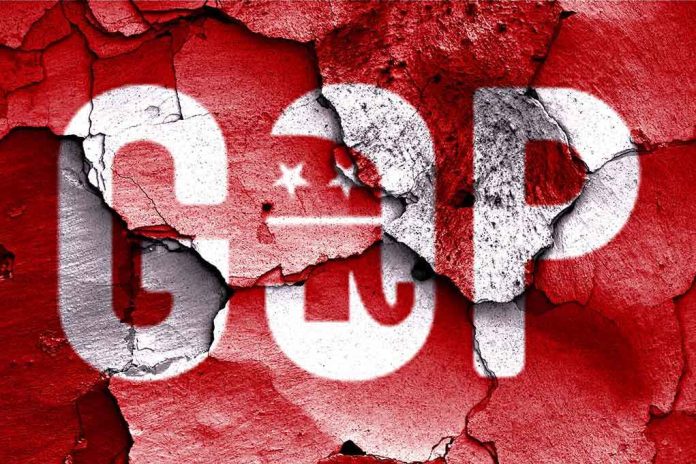
A new ranking system threatens to deepen divisions within the GOP, raising concerns among conservative circles about party unity.
Story Highlights
- The “Trump Score” reveals which Republican lawmakers break with Trump’s policy positions.
- Introduced post-2024 election, it emphasizes loyalty to Trump’s “America First” agenda.
- The scorecard aims to influence primary outcomes and public perception within the GOP.
- Concerns arise over the potential for further polarization within the party.
Trump Score: A Tool for Party Loyalty
In October 2025, a new ranking system known as the “Trump Score” was introduced, aiming to track Republican lawmakers’ alignment with former President Donald Trump’s policy positions. This initiative, based on congressional voting records, seeks to identify and expose those who diverge from the “America First” agenda, thereby spotlighting internal divisions within the GOP. The scorecard highlights transparency and accountability, serving as a tool for Trump-aligned activists to exert pressure on lawmakers.
This ranking system underscores the ongoing influence of Trump within the Republican Party, especially after the 2024 election cycle. It marks a shift from informal loyalty tests to a systematic approach, drawing attention to the power dynamics within the party.
Advocacy groups and political organizations are leveraging the Trump Score to reinforce party discipline and marginalize dissenters. Lawmakers with high Trump Scores can bolster their appeal among the conservative base, while those with low scores face potential primary challenges and loss of support from donors. The scorecard is seen as a political weapon that could reshape primary outcomes and influence future campaign messaging.
Implications for the Republican Party
The introduction of the Trump Score has sparked debate within the GOP. Some lawmakers have defended their voting records, while others downplay the significance of the rankings. The methodology and transparency of the scorecard are under scrutiny, with critics questioning its objectivity and fairness. Concerns have been raised about the potential for further polarization and tribalism within the party, as the Trump Score becomes a litmus test for loyalty.
Experts warn that this approach could reduce complex legislative decisions to simplistic loyalty tests, potentially undermining independent policymaking and discouraging pragmatic governance. The Trump Score could entrench Trumpism as the party’s dominant ideology, risking alienation of moderate voters in the process.
Future of GOP and Trump’s Influence
As the Trump Score circulates among conservative media and activist circles, it is expected to play a significant role in shaping the future direction of the Republican Party. The scorecard’s influence on primary endorsements and campaign strategies highlights the enduring impact of Trump’s endorsement power. This situation presents a challenge for establishment Republicans who may resist the scorecard’s implications.
In conclusion, the Trump Score represents a pivotal moment for the GOP, as it navigates internal divisions and the continued influence of Trump’s policy positions. The ranking system’s impact on party dynamics and legislative priorities will be closely watched in the coming months.
Sources:
New ‘Trump Score’ Rankings Expose GOP Lawmakers Who Break With President’s Policies
Trump Score: A New Metric for GOP Loyalty
The Trump Scorecard: Historical Context and Analysis





